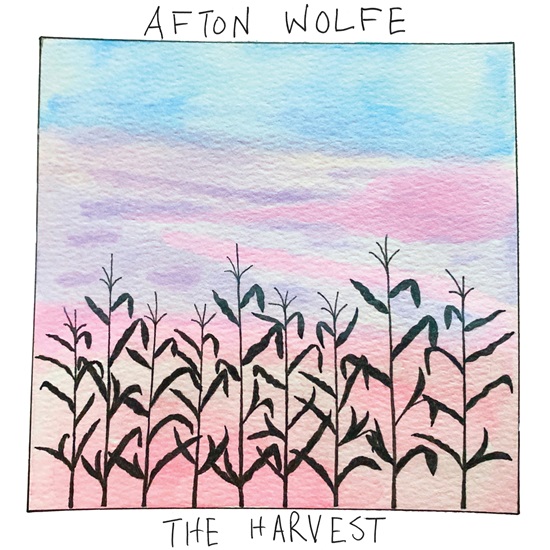
If anything’s predictable about the work of Afton Wolfe it’s the unpredictability. He has such a wide range of references and influences that you never know what’s around the next corner. The first surprise about ‘The Harvest’ is that there are no Afton Wolfe originals. The second surprise is that all of the songs are written by his father-in-law L.H. Halliburton so the album’s all about performance and interpretation of someone else’s songs, bringing all of his influences into play. Afton’s gravelly baritone serves all seven songs on this project perfectly the slightly sinister ‘Hello, Mr. Wolf’ – more about that later.
The album opens with ‘The Harvest’ which bounces along with hints of Van Morrison’s ‘Bright Side of the Road’ to put forward the idea that the year should begin in the fall with the harvest, rather than in spring with the sowing. ‘New Orleans Going Down’ has an unsurprising Dr John feel with the full band (including piano, of course). The vocal delivery echoes the rising of the flood water, becoming more impassioned with each chorus as the water levels become more dangerous. The next two songs get to the heart of Afton Wolfe; if you threw the DNA of Bob Seger and Tom Waits in a blender, you would get something close to Afton Wolfe vocally and stylistically.
The gospel-tinged ‘Lost Prayers’ with piano and fiddle fills evokes the classic mid-tempo Seger song, while ‘Hello, Mr. Wolf’ with its gruff spoken lyric and its off-kilter sparse arrangement and comparison of the wolf with human animals echoes Tom Waits at his most raw. The next two songs both look back in terms of style. ‘Till the River No Longer Flows’, with its message of persistence in the face of adversity has a big Southern rock sound in the good old Lynyrd Skynyrd style, including the obligatory extended guitar solo to the finish. ‘Mississippi’ has Afton exploring his soul/Stax roots with horns and piano triplets as he delivers L.H. Halliburton’s message to the state that mirrors Neil Young’s seventies message to Alabama. The album closes with the very lo-fi ‘Here to Stay’ exploring loneliness over a stuttering, reverbed piano backing saturated with tape hiss. It’s very evocative, bordering on disturbing.
‘The Harvest’ is an interesting project. Afton Wolfe doesn’t shy away from covers and interpretations, but covering seven songs by the same writer is a different challenge altogether and he absolutely aces it with his usual variety of styles and distinctive vocal delivery. Whatever Afton Wolfe tackles, you know it’s going to be interesting.
‘The Harvest’ is out now on Grandiflora Records.
Here’s the official video for ‘Lost Prayers’:
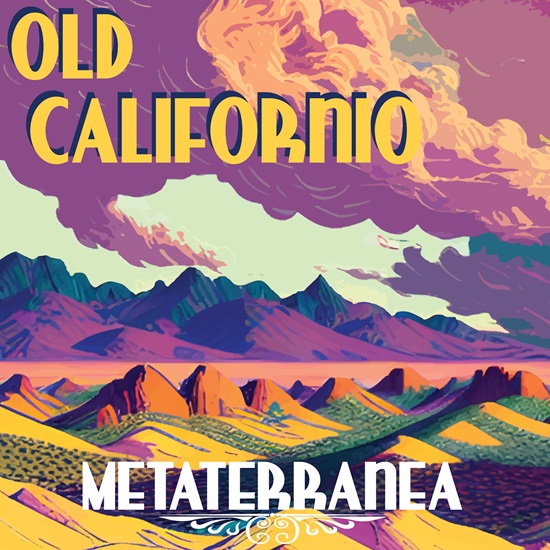
The longer you listen to ‘Metaterranea’ the more you realise what a challenge it is to pin down Old Californio to any given style. There are elements of country, elements of straight-ahead rock and even a bit of jazz thrown in. What you can be certain of is that the songs are well-crafted and the playing is superb throughout. The choice of songs to top and tail the album shines a light on the band’s influences and the musical journey taken by the ten songs.
The album opens with a tribute to El Camino Real (definitely not the King’s Road in Chelsea) and the people who gather in the bars in the towns along the old highway. It’s a song that harks back to the analogue and organic era of the seventies (there’s even a lyrical reference to “The lotus eaters and the luddites”) and great bar bands with musicians playing guitars, keys, drums and bass as opposed to sequencers, loop stations and laptops. Like the rest of the album it’s more about the feel than the technical aspects.
The album takes us on a journey, through all of its twists and turns to the final song ‘Just Like a Cloud’ which is a lyrical and musical exploration of dissolution. Lyrically it’s all about the thought of returning to the ecosphere after death, while musically it starts as a solid rock arrangement with guitar and electric piano before an extended guitar solo morphs away from rock territory into atonal freeform jazz to represent the random scattering of fragmented remains.
The name Old Californio is entirely accurate. Songwriter Rich Dembowski is an old-school melancholy West Coast troubadour with dreamlike songscapes and lyrical references to evanescence, mythology (Sisyphus) and even Holy Communion. The musical settings also reflect the late sixties/early seventies vibe with hints of The Band and the rockier Neil Young material. It’s loose but with a nice swing. If there’s one song that encapsulates the outsider status of Rich Dembowski, it’s ‘Weeds/Wildflowers’, which sees the outsider as the weed. As gardeners will tell you most weeds are just plants that grow where you don’t want them.
‘Metaterranea’ is very much a back-to-basics album where the focus is on creating settings that emphasise the message of the original and unusual songs without any unnecessary studio trickery – just great arrangements and great playing. I’ll take that any day of the week.
Here’s the album’s opener, ‘Old Kings Road’:
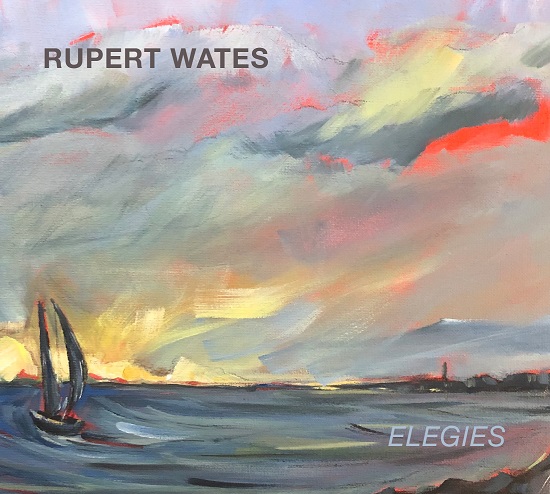
Bear with me while I get the nostalgia bit out of the way. There was a time in the 1970s when singer-songwriters from the folk world could become massive, making singles and albums that charted and selling out 2,000 capacity venues armed with only an acoustic guitar (usually a Gibson or a Martin at that time). It wasn’t just the odd one or two either; there was strength in depth as well. We had Ralph McTell, John Martyn and Richard Thompson (among others) in the UK and North American continent had Gordon Lightfoot, James Taylor and Neil Young (when he wasn’t squeezing squalls of feedback out of Old Black. Rupert Wates would have fitted in perfectly with his virtuoso finger-style guitar and mix of traditional and modern lyrical themes. Skip forward five decades and folk music’s a minority interest again. Which is why I have such a great admiration for artists like Rupert Wates. He does what he does in the knowledge that it’s a labour of love and that’s pretty common in certain areas of today’s music business.
The eleven songs on ‘Elegies’ are love songs but, as the title implies, they all convey a sense of loss as well. The musical stylings reflect the lyrical content of the songs; the more traditional folk-style lyrics tend to have fairly conventional guitar stylings while the contemporary lyrics lean towards a jazz feel, particularly when Trifon Dimitrov joins the party on double bass. Of the traditional lyrical songs, ‘Guinevere’ is based on ‘Malory’s ‘Morte d’ Arthur’ with hints of the Robin Hood legend, ‘Lady of the Glades’ is based on Keats’ ‘La Belle Dame Sans Merci’ and ‘Across the Water’ derives from Tennyson’s ‘Lady of Shalott’. ‘The Storm’, with its high-register vocal, is inspired by Poe and Coleridge and builds and darkens musically to reflect the ominous oncoming weather. ‘The Man Who Worked in Clay and Stone’ has a more modern feel and arrangement underpinning a message that you should be careful what you wish for because ultimate beauty is ultimately sterile.
Of the more modern lyrics, ‘Cathy’ is a love song with a smoky jazz club feel enhanced by the double bass, and ‘We’ll Go Dancing’ is a love song set in Paris that also hints at the speakeasy era of the 1930s in the States. It’s a mark of Rupert Wates’ craft that he’s able to create such a variety of moods with one or two guitars, occasional double bass and vocal.
‘Elegies’ is Rupert Wates’ twelfth album and it demonstrates perfectly why he’s an award-winning songwriter and performer. He’s a genuine virtuoso acoustic guitar player who plays with the kind of subtlety that you won’t be hearing on mainstream radio any time soon. If you’re in the UK and you want to see and hear him play, he has one UK date at The Cabbage Patch in Twickenham on Sunday October 1st.

I see a lot of artists performing live on the independent London circuit; most of them are good, some of them are great and occasionally you hear something that blows you away. I’ve had a couple of those over the last few years; one of them was the first time I saw Si Connelly play a band set live at Hope and Anchor in November 2021. What I saw left me absolutely stunned; a performer who took the stage in a basement in Islington and held nothing back in his playing and vocals and he was photographic gold; so expressive and so committed. I was hooked and I’ve caught as many of his shows as I can since then, including the launch for his latest album ‘Nevertheless’ a couple of weeks ago. at Blues Kitchen in Brixton.
In 2022, Si released an EP every month and he’s moved on to albums this year. To say he’s prolific as a songwriter is a huge understatement, but it’s not just about quantity; the songs are all superbly crafted and the performances, particularly the vocals, are out of the top drawer. About those vocals; Si’s range is exceptional, particularly at the high end and he uses it to great effect both in the studio and live. So, what about ‘Nevertheless’?
It’s an album that demonstrates the breadth of Si’s writing, playing and singing; from the big rock riff opener ‘Gimme More’ to album’s gentle closer ‘Sea of Change’ with its folk feel and stripped back vocal and acoustic guitar treatment. It’s a lot like Neil Young, moving seamlessly from introspective acoustic to rock-out electric. Si’s equally adept at either end of that scale.
There’s an art that great songwriters and performers have of incorporating influences without actually stealing anything and there are couple of great examples of this on ‘Nevertheless’. ‘Hold Me’, with its huge dynamic range is a nod in the general direction of Prince’s ‘Purple Rain’, while ‘How Do You Love Me’, with its sixties soul feel emphasised by the keyboard parts, hints at the lyrical structure of Sam Cooke’s ‘You Send Me’ repeating lines with slight changes as the verse unfolds.
If you need an introduction to Si’s work, ‘Nevertheless’ isn’t a bad place to start. It features rock, soul and acoustic elements and demonstrates Si’s powerful use of dynamics while showcasing his exceptional voice. It’s a great piece of work but I can’t leave this without saying that you can only get the full Si Connelly experience by seeing him play live either solo or with his band – that’s an experience you won’t regret and you won’t forget.
‘Nevertheless’ is out now on all of the digital platforms.
Find it here on Spotify:
Here’s the video for ‘Winter’s Song’:
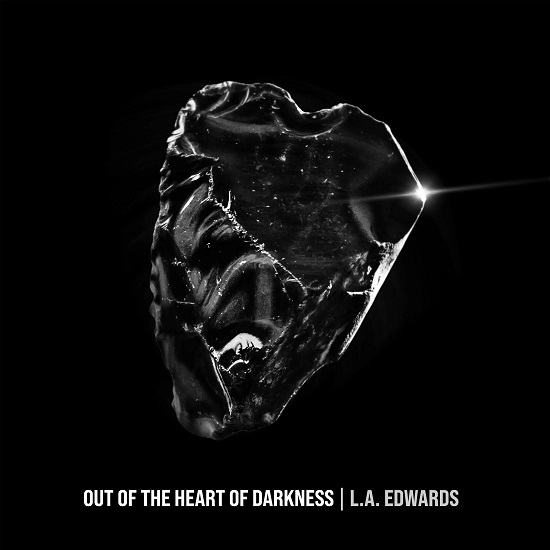
Imagine driving along the freeway in the early eighties. The sun’s shining, the roof’s down and the radio’s tuned to the local FM station. You could be listening to any song from the L.A. (Luke Andrew) Edwards album ‘Out of the Heart of Darkness’. Unfortunately the press pack didn’t come with a time machine, so it was a Skoda on the A12 but at least the sun co-operated. The album’s packed with nine classic FM style rock songs influenced by the bands of the late seventies and the early eighties mixed with Luke Edwards’ acoustic folk roots to create a widescreen sound that’s difficult to resist.
The album starts with a haunting spoken intro from a child in some sort of distress before launching into ‘Little Boy Blue’ which opens with the album’s trademark jangling guitars overlaid with a synth line. The chiming guitars, harking back to Tom Petty, The Byrds and even the Mersey Sound are a constant throughout the album and L.A.’s slightly nasal intonation emphasises the Tom Petty connection (his first solo album was produced by former Heartbreaker Ron Blair) and there are hints of other influences as well. Creedence Clearwater Revival and the Laurel Canyon groups; Neil Young, Eagles and so on, but there are a few surprises as well.
Most of the musical stylings are standard rock band arrangements (drums, bass, guitars and keys) but there are a few surprises as well. ‘Already Gone’ (not an Eagles cover) begins with a swirling Wurlitzer prelude before the sticks click and the band blasts into the song. There’s a good use of dynamics throughout the album as songs build up gradually and there are plenty of breakdowns to vary the tempo and power. ‘Stick to You’ is another interesting blend of styles, combining L.A.’s earlier folk roots with rock instrumentation and some tribal floor toms to create something that edges into Waterboys territory.
There’s plenty of novelty in the combinations of styles across the album, but there are a few of the old tricks as well including the squalling feedback intro on ‘Now You Know’ and the twin lead guitars opening ‘Time to Go’. There’s even the unapologetic drug references of ‘Hi Rite Now’; it’s got all of the ingredients for a classic rock album.
‘Out of the Heart of Darkness’ is released in the UK on Friday June 2nd and the band will be touring the UK and Europe in early July.
Here’s the video for ‘Already Gone’:
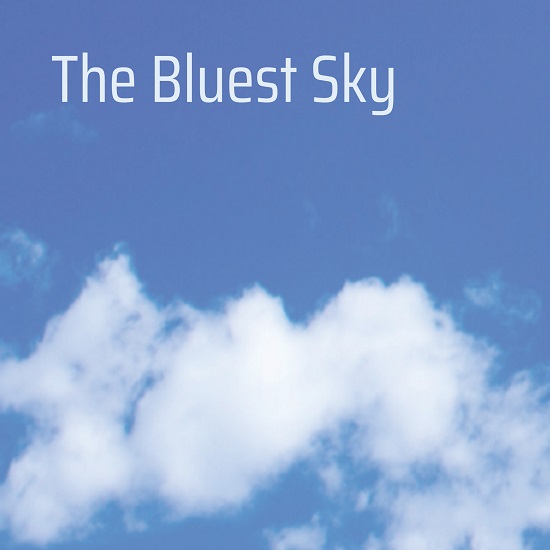
The Bluest Sky is the latest incarnation of Chuck Melchin, following his spell of four albums and two EPs as the cornerstone of celebrated Bean Pickers Union. The self-titled album is an attempt to move on from gentler introspective feel of his earlier work to creating “music that will make you want to drive your car faster”. With the nine songs featured here, he’s definitely succeeded; there’s only one slower, more contemplative, song on the album, but more about that later. The Laurel Canyon influence is strong on ‘The Bluest Sky’ with nods to Eagles, Neil Young and maybe even Evan Dando at times. The album was put together using the post-COVID method of musicians recording parts in their own studios before being mixed and mastered by Dave Westner; the results are organic and seamless.
The opening song, ‘Belly to the Bar’ sets the tone for the rest of the album with a country rock feel driven along by a pair of electric guitars under Melchin’s slightly fragile vocal as the story unfolds of a character trying to avoid being pulled into a rebound relationship. Most of the album’s songs are about personal situations although each has a slightly different twist. ‘The Girl It Took the Universe’ is a metaphysical look at the unseen forces moulding and pulling together two people over the aeons until the time is ripe for them to meet ending on a classic sixties sus4/sus2 progression, ‘Amy Jean’ is a straightforward karma and revenge song with a Southern rock feel that hints at the Allman Brothers’ Band’s ‘Jessica’ and ‘I Am James’ is a gentle country rock story of a man too shy to get himself noticed by a woman. ‘Drive Through Confessional’, with its mainly acoustic arrangement before a soaring electric guitar joins the mix, is a powerful piece of hometown nostalgia that turns around with the realisation that that reason for going back is the death of a loved one; it’s a powerful piece of work.
The two songs that step outside the personal may or may not be connected. The slow and melancholy ‘New Berlin’, its sadness punctuated by pedal steel fills, is a snapshot of a smalltown American town destroyed by a world economy that values only profit and scale; things can only get worse. There are a couple of references to classic American songwriters, John Fogerty’s ‘The Old Man Down the Road’ and Townes Van Zandt’s ‘Waiting Round to Die’ in the lyrics. It’s a powerful song with a storyline that could ultimately lead to the apocalyptic vision of ‘Bunkhouse’, the album’s penultimate song. The story of an unspecified rebellion and survival skills is played out over a Crazy Horse-style backing to maximum sinister effect.
Chuck Melchin and his collaborators have achieved the primary aim of making us want to drive faster while creating a bunch of varied and beautifully crafted songs. Job done.
‘The Bluest Sky’ is out now.
This is ‘Bunkhouse’:
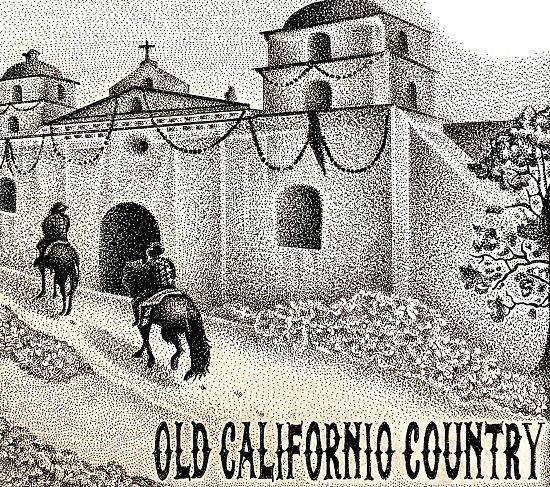
Here’s an interesting idea. Although the central figure in Old Californio is renowned songwriter Rich Dembowski, ‘Old Californio Country’ features ten covers and three band originals. There’s no reason why a songwriter shouldn’t do an entire album (almost) of covers; Bruce Springsteen’s just done it with his favourite old soul and rhythm and blues songs and the record-buying public is purring over that one. ‘Old Californio Country’ that’s packed with superb playing, beautiful lead vocals and harmonies and wonderful interpretations of songs by songwriters acknowledged as masters of their craft. It almost goes without saying that the playing isn’t showy, it’s just the playing that the song needs to make it shimmer.
Although the album’s heavily loaded with covers, the opener is a Rich Dembowski original played in classic country style and spiced with outlaw country sentiment – “shorten your give-a-shit list” is good advice for all of us. The covers range across a wide variety of country-related styles and interpretations, from Neil Young’s ‘Lotta Love’ that almost mimics Young’s ‘Comes a Time’ production but is turbocharged with perfect and powerful harmonies, to a rockabilly reworking of John Prine’s ‘Knockin’ On Your Screen Door’ that opens with a nod in the direction of Billy Joel’s ‘Still Rock and Roll to Me’. The Beatles’ ‘Because’ is transformed from a psychedelic piece to a banjo-led country song with soaring harmonies, while Lowell George’s ‘Willin’’ has all the edges and corners smoothed away to create a plaintive and beautiful ballad of life on the road made tolerable by “wed, whites and wine” punctuated by the reliably melancholy harmonica and lap steel fills – it’s the loneliness of the long-distance trucker.
How about favourites? Well two songs stand out for the quality of the song and the Old Californio interpretation. The Jason Isbell song ‘Maybe It’s Time’ (also covered recently by KB Bayley) is a classic example of powerful, evocative and economic songwriting highlighting indoctrination of the population underpinned by finger-picked acoustic guitars, lap steel fills and Nashville twang solo. The Guy Clark song ‘Stuff That Works’ is delivered in a minimal, laconic style with a resonator slide solo; it’s a hymn in praise of using the things that we actually need rather than the things we’re pressured to buy to keep up. Forget iPhone 14 and concentrate on that old shirt, pair of boots or guitar. On a personal note, I listen to my review albums on a fifteen-year-old MP3 player – if it ain’t broke…
‘Old Californio Country’ is out now.
Here’s a live version of ‘Willin’’:
OLD CALIFORNIO – WILLIN’ – Live at McCabe’s – YouTube
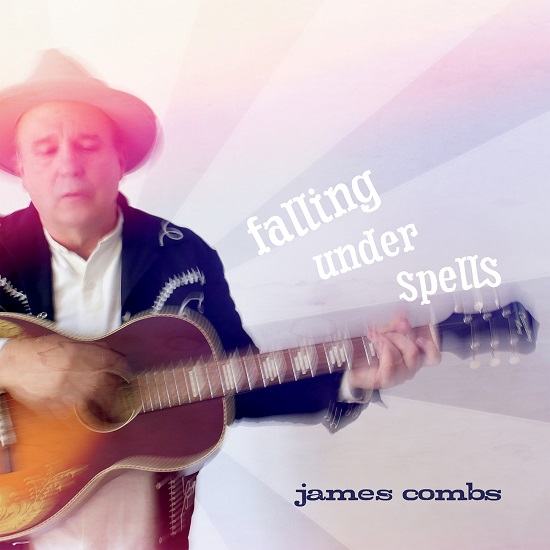
It looks like it may be some time before we escape the influence of the pandemic on recorded music, particularly in the areas of Americana and folk where the traditions of storytelling and reflecting the world around us are important. ‘Falling Under Spells’ isn’t crammed with references to COVID, but it’s certainly the basis for the album’s two closing songs, ‘Everybody Inside’ and ‘Nowhere Fast’, while the problems of twenty-first century America, including its forty-fifth President, are also themes that permeate the album, along with a few magical and mystical references.
The album’s opening song ‘Ruleless Games’ attempts to explain the unfairness of the world to a child and features some of the album’s sound signatures, the muted trumpet sound and the plaintive, higher register, Neil Young-like vocal of James Combs that’s echoed by the Crazy Horse feel of some of the arrangements. The horns are gentle and muted, not the strident stabs that are used to punctuate our soul classics; they’re more mariachi than Motown or Stax and contribute to the mellow feel of the album.
There are a few more nods in obvious and less obvious directions to other musical styles on the album. ‘Spells’ hints at The Byrds with some sixties tremolo guitar and maybe even a touch of The Stones’ ‘The Last Time’ (with added trumpet); all elements that you might have heard in referenced in the Americana canon. ‘Cut and Run’ is slightly different in that the reggae-tinged arrangement has more than a hint of the Gorillaz song ‘Clint Eastwood’ with piano and slide guitar. The title repeats like a mantra through the song as it urges us to abandon America’s twisted priorities (and their hype-man).
Despite the ominous and mystical feel of songs like ‘Strange Signs’ and ‘Spells’, ‘Falling Under Spells’, manages to generate a gentle wave of optimism for the future with songs like ‘True Believer’ and ‘Joy is Allowed’, a reminder that even in the most awful times, it’s ok to find joy somewhere. And any album that’s underpinned by the gentler side od Neil Young is fine by me.
‘Falling Under Spells’ is released in the UK on Friday May 27th on High Pine Steeple Recordings (1001).
Here’s a link to the video for ‘Strange Signs’ (featuring April Mann):
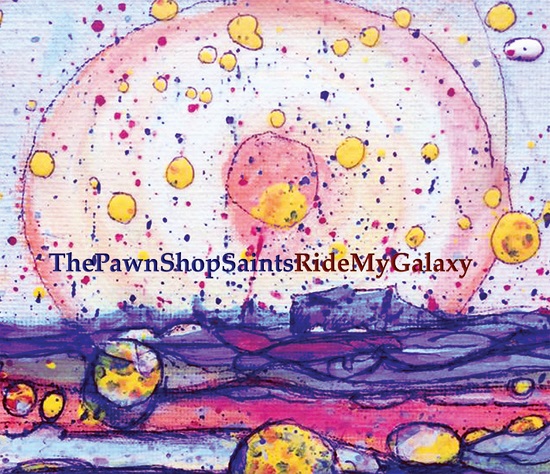
‘Ride My Galaxy’ looks like it will be one of three Pawn Shop Saints/Jeb Barry albums conceived in the pandemic to be released in the near future. The thing that unifies this album and will probably unify the remaining two albums is Jeb Barry’s voice. The songs range from the nostalgic West Coast country/rock of ‘Chevy Nova’ to the unrelenting gloom of ‘Ain’t No Mama Here’, but the cracked emotion of the voice that combines the vulnerability of Jackson Browne with the raw power of Greg Dulli is a constant.
There are the trademark Pawn Shop Saints acoustic staples aplenty on the album, but there are also a few elements of pop and rock pushing through the mix. There’s an opening studio chat on ‘Exits’ about getting the song down “mistakes and all” that sets the tone for the album. It’s much more about capturing the feel of the songs, rather than perfect performances. There’s no shortage of nods in the direction of iconic pop and rock figures and songs either. The I-VI chords at the start of ‘diane’ have a hint of Sam Cooke’s ‘Cupid’, while ‘Jenny Why’ has a hint of Danny Whitten’s ‘I Don’t Want to Talk About It’ and an arrangement that’s reminiscent of The Band. The paranoid menace of ‘Wicked’ is emphasised by a band sound that could be Crazy Horse at its most rough and ready. You get the picture; you can pick out the influences, while it’s all held together by great songwriting and Jeb Barry’s voice.
The album opens with a song that isn’t in typical Pawn Shop Saints territory; ‘Chevy Nova’ is unashamed seventies nostalgia. It’s a cars, girls, booze and drugs song, but in an innocent and naïve way. The closing song is firmly back in Pawn Shop Saints lyrical territory with a story of the pain caused by a broken relationship, but with a grungier sound that’s emphasised by a completely live studio recording.
‘Ride My Galaxy’ is an intriguing blend of the hard-edged dirt-poor Americana typified by the floods, crop failures and fever deaths of ’Ain’t No Mama Here’ and some new elements pop, punk, psychedelia and even nostalgia. It’s a good mix and creates a fascinating album.
‘Ride My Galaxy’ is out now Dollyrocker Records (DR20221). Here’s the video for ‘Exits’:
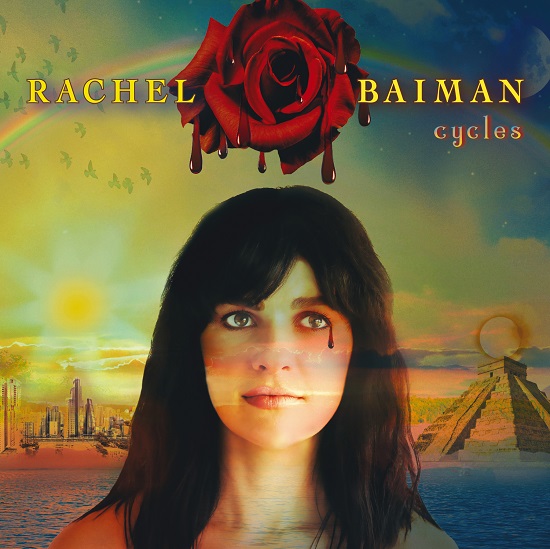
It’s all worthwhile when you hear an album as good as this. Rachel Baiman has created a collection of ten songs with a range of Americana musical stylings that is intensely personal while also referencing current social and political issues in the USA (although the album was recorded in Australia). The other thing you’ll notice about the songs is that whether personal or political, they mainly address issues that directly affect women (Rachel herself, her sister, her sister-in-law and her grandmother). They aren’t all happy stories, but that’s the whole point; the various cycles of life have good and bad phases. The mid-tempo title song, with its distinctive layered vocal is a tragic and yet uplifting story of two generations of women from the same extended family binding together in mutual support to deal with a still-birth and then a difficult birth; it’s deeply moving.
The two overtly political songs sit side by side on the album. “Rust Belt Fields” is Rachel’s take on a Rod Picott/Slaid Cleaves song; the song’s ten years old, but still sounds relevant. The minimalist one-bar percussion loop creates the relentless feel of the automobile production line, lost forever to more cost-effective (exploitative) overseas territories. The song is a fatalistic acceptance of the corrosion of the Steel Belt to the Rust Belt and the unmourned loss of the jobs this entailed: ‘No-one remembers your name just for working hard’. “Wyoming Wildflowers” is a Rachel Baiman/Olivia Hally song that uses the theme of diverse colours in nature to skewer white supremacist views. The lyrics are set against a gentle country-rock arrangement and the message is emphasized by the repetition of the final two lines.
There are ten superb examples of the songwriter’s art on “Cycles” including another that pressed all of my buttons, “No Good Time for Dying”, which deals with watching someone you love suffer the indignities of a protracted death; it’s not pretty, but it’s the end of the cycle that starts with the opening song. The album’s final song, “The Distance”, tackles the way we habitually deal with recurring life situations in the same way because it’s easier than thinking about another way.
The Rachel Baiman/Olivia Hally musical arrangements and production on “Cycles” are deceptively simple while featuring ambient instrumental sounds and layers of vocals that always allow the songs plenty of room to breathe. There are hints at times of the vocal stylings of Neil Young, Emmylou Harris, and even Rickie Lee Jones (on “No Good Time for Dying”) but the bottom line is very much Rachel Baiman, teasing out themes of family, work versus relationships, politics and even the “I Will Survive” sentiment of “Hope it Hurts”. This album is complex, sometimes painful and very rewarding.
“Cycles” is released in the UK on Signature Sounds Recordings (SIG-CD-2129 / SIG-LP-7038) on Friday June 11th. Here’s the video to “Joke’s On Me”:


